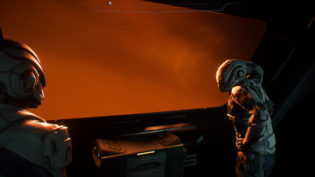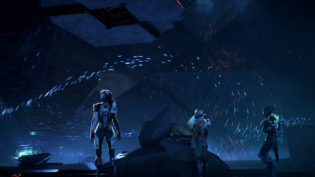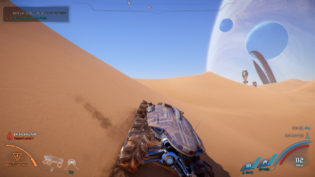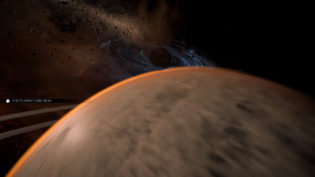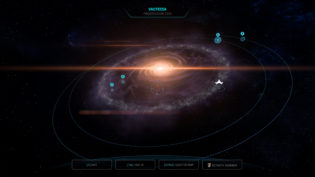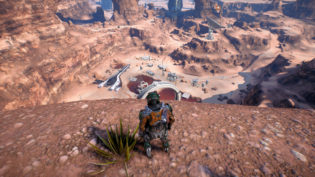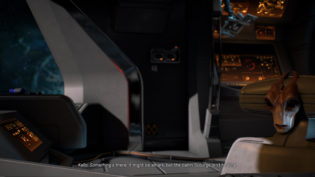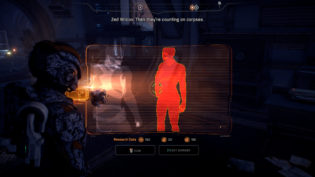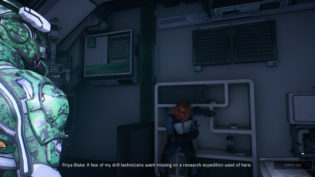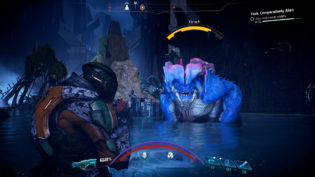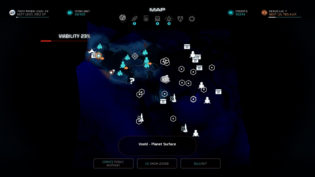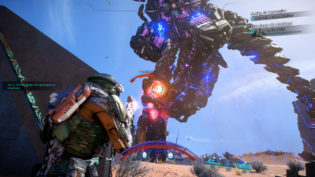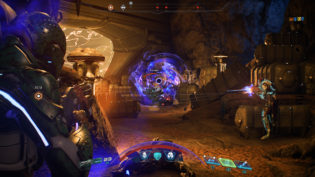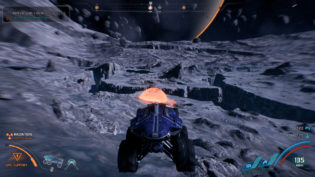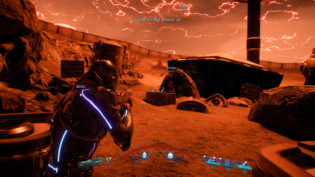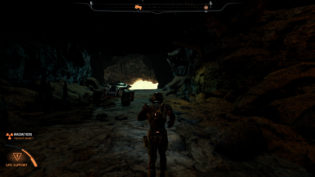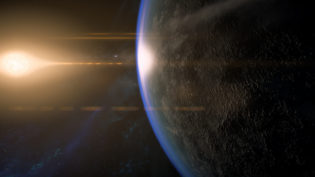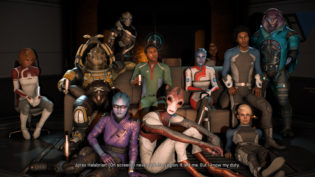I still love the original Mass Effect trilogy, as do many people. Despite its many many flaws, I loved replaying the games a few years ago and had lots of fun with each and every of them. But the release of Mass Effect: Andromeda in 2017 wasn’t quite as beloved, to say the least. In fact, most people outright hate the game and there’ve been plenty of ammo to use against it ever since the release date. For all intents and purposes the game was a failure and the team behind it at BioWare Montréal branch was later merged into Motive Studios. I’ve tried the game myself, at the same time as I’ve been replaying the original trilogy, and back then, still tired from the Dragon Age: Inquisition playthrough, I’ve decided to return to the game later. And with a recent hardware upgrade, the time to check the game has arrived. It’s… actually not bad. Yet, the reaction the title has gotten is very easy to understand.
I won’t claim to understand what the goals behind developing Andromeda were, but it feels like the intent was to return to the original ideas of space exploration from the first Mass Effect title and focus on those. The setup is designed to do specifically that and distance itself from the events that happened during the whole Reapers thing in the Milky Way galaxy. Essentially, during a period between Mass Effect 1 and 2 the Andromeda Initiative launches several Arks with several Citadel/Milky Way species to the Andromeda galaxy – to colonize new worlds and create a new home. After about 600 years of automated flight, while the crew was in cryosleep, the Arks arrive to the Heleus Cluster of Andromeda Galaxy where several potential “golden worlds” were observed, perfect for colonization efforts. Except, something went wrong during these several centuries of flight and a bizarre anomaly made out of dark matter “corrupts” the entire cluster, seemingly solely responsible for making many planets uninhabitable.
The main character role is also, fittingly, assigned to a “Pathfinder”, someone who leads the exploration efforts of the Initiative aided by an AI integrated in a neural chip, helping with all important choices and potential first contacts. The Initiative are not military, after all, and despite having such capabilities, are meant to be an effort driven by science and exploration, rather than anything else. As such, the Pathfinder is meant to go on exploration missions and has an ability to scan whatever they find, with the AI providing them with translation and explanations necessary.
It’s a beautiful idea, really, focusing specifically on those fun rides on Mako M35 in the original game, hopefully without all of them ending in “Enemies everywhere” copypasted dungeons. About scanning planets, travelling the galaxy. About adventure, the mystery of space and other civilizations. And when that clicks in ME: Andromeda, it works absolutely brilliantly, exactly as a perfected version of what we had in the original Mass Effect. You’d drive in Nomad, the new version of a Mako transport, which is so extremely fun to control and addresses all of the issues Mako originally had. You scan flora, fauna, weird artifacts and anomalies. You learn more about the new galaxy you’re in. Meet new species, not all of which are hostile. Discover new revelations about the situation the Initiative found itself into.
And at its best, the new crew you get is also loveable (mostly) and fun to hang out with. Again, taking the best ideas from the original game and putting them into a title where no “ancient race is coming to destroy all life” timer isn’t ticking, and focusing all efforts on exploration, so many things that sometimes felt off in the original trilogy suddenly work even better than before. High stakes skill-based dialogue options are exchanged for something closer to Dragon Age II, where it’s less about the choice and more about forming your pathfinder character and their relationships with others. While rare instances of actually meaningful solutions in contrast feel even more important, because of how much more rare they are and how they’re not really tied to any numbers in your RPG skill tree.
But all of that works when the game is at its best. And, sadly, most of the time it very much isn’t. So what you usually get instead is something quite mediocre, sometimes baffling, sometimes outright stupid, and more often than you’d with simply boring. While a lot of the issues that plagued the original release of the game got fixed, the game can still glitch out royally, some of the quests, also reminiscent of DA II, are simply cut despite being talked about in dialogue (you just don’t get an actual quest and can’t progress it). The animations can still look horrible, some of the characters are obnoxiously stupid, lots of plot points are unnecessarily trite and uninteresting and the “lore” of the game is really weak. Where the original Mass Effect world building was clearly made by nerds who cared about lots of little details (even if it was far from perfect in its own right), Andromeda has dismissed the claim a lot of it and feels like a cheap-ish 90s TV show based on a movie license, that ignored a lot of established ideas just to fit everything into the typical TV format and continued indefinitely.
A lot of the tedium also found in Dragon Age: Inquisition is also present, most likely because EA. So you have spots where multiplayer and loot boxes could have a place (if the game was more successful), you have lots of quests that require you to constantly jump between planets for no reason other than waste your time and “show the content” and just an abundance of pointless checklist tasks of “shoot X amount of Y” or “scan X amount of Y”. However, a lot of it is not as obnoxious as it was in Inquisition, probably mostly due to the main gameplay mechanics. While Inquisition had an actually solid story for about 5 hours, spread across 60 hours, but very lackluster gameplay, Andromeda has a piss-poor excuse for the main story, but the gameplay is actually pretty fun, despite also lasting 60 hours.
The gameplay is flawed, mostly due to the open world nature of the majority of combat situations you will be in, but the beauty of Mass Effect 3 combat still shines through. The guns feel fun to use and, more importantly, the tech+biotic combos are still extremely fun. Enemies are more bullet-sponge then they were in previous entries, as this game wasn’t designed with “fun tps action” in mind, clearly, it was designed with “provide players with 80 hours of content and we don’t care what that content is”. But despite that goal, it works really well. It is funny, though, to see that the most fun and memorable planets and moments in the game are, however, very close to the size and scope of the previous titles, rather than this open world nonsense. Riding Nomad with low gravity is really fun.
So, despite the EA’s typical desires for the title, already seen in Inquisition before, and because of the team’s desire to make a Mass Effect game about exploration, Mass Effect: Andromeda is actually pretty fun. Too long, very bland in many spots, not even close to living up to the name, glitchy and often poorly written. But actually pretty fun. It’s very easy to look at this title and see what a great game it could’ve been if you cut that here, add this there, rewrite something and refocus the game, but… As it is, it’s not a terrible game to play. And, in fact, if you liked the exploration aspect of the original Mass Effect and would’ve liked to see it again, but in many ways improved (in some downgraded), then you would enjoy Andromeda. I certainly did, which was a complete surprise.


